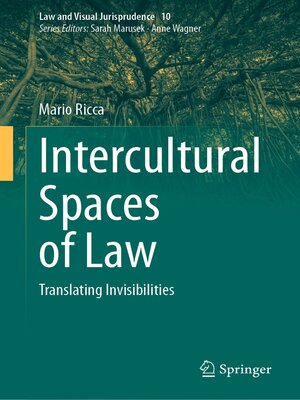Intercultural Spaces of Law
ebook ∣ Translating Invisibilities · Law and Visual Jurisprudence
By Mario Ricca

Sign up to save your library
With an OverDrive account, you can save your favorite libraries for at-a-glance information about availability. Find out more about OverDrive accounts.
Find this title in Libby, the library reading app by OverDrive.



Search for a digital library with this title
Title found at these libraries:
| Library Name | Distance |
|---|---|
| Loading... |
This book proposes an interdisciplinary methodology for developing an intercultural use of law so as to include cultural differences and their protection within legal discourse; this is based on an analysis of the sensory grammar tacitly included in categorizations. This is achieved by combining the theoretical insights provided by legal theory, anthropology and semiotics with a reading of human rights as translational interfaces among the different cultural spaces in which people live. To support this use of human rights' semantic and normative potential, a specific cultural-geographic view dubbed 'legal chorology' is employed. Its primary purpose is to show the extant continuity between categories and spaces of experience, and more specifically between legal meanings and the spatial dimensions of people's lives.
Through the lens of legal chorology and the intercultural, translational use of human rights, the book provides a methodology that shows how to make space and lawreciprocally transformative so as to create an inclusive legal grammar that is equidistant from social cultural differences. The analysis includes: a critical view on opportunities for intercultural secularization; the possibility of construing a legal grammar of quotidian life that leads to an inclusive equidistance from differences rather than an unachievable neutrality or an all-encompassing universal legal ontology; an interdisciplinary methodology for legal intercultural translation; a chorological reading of the relationships between human rights protection and lived spaces; and an intercultural and geo-semiotic examination of a series of legal cases and current issues such as indigenous peoples' rights and the international protection of sacred places.







